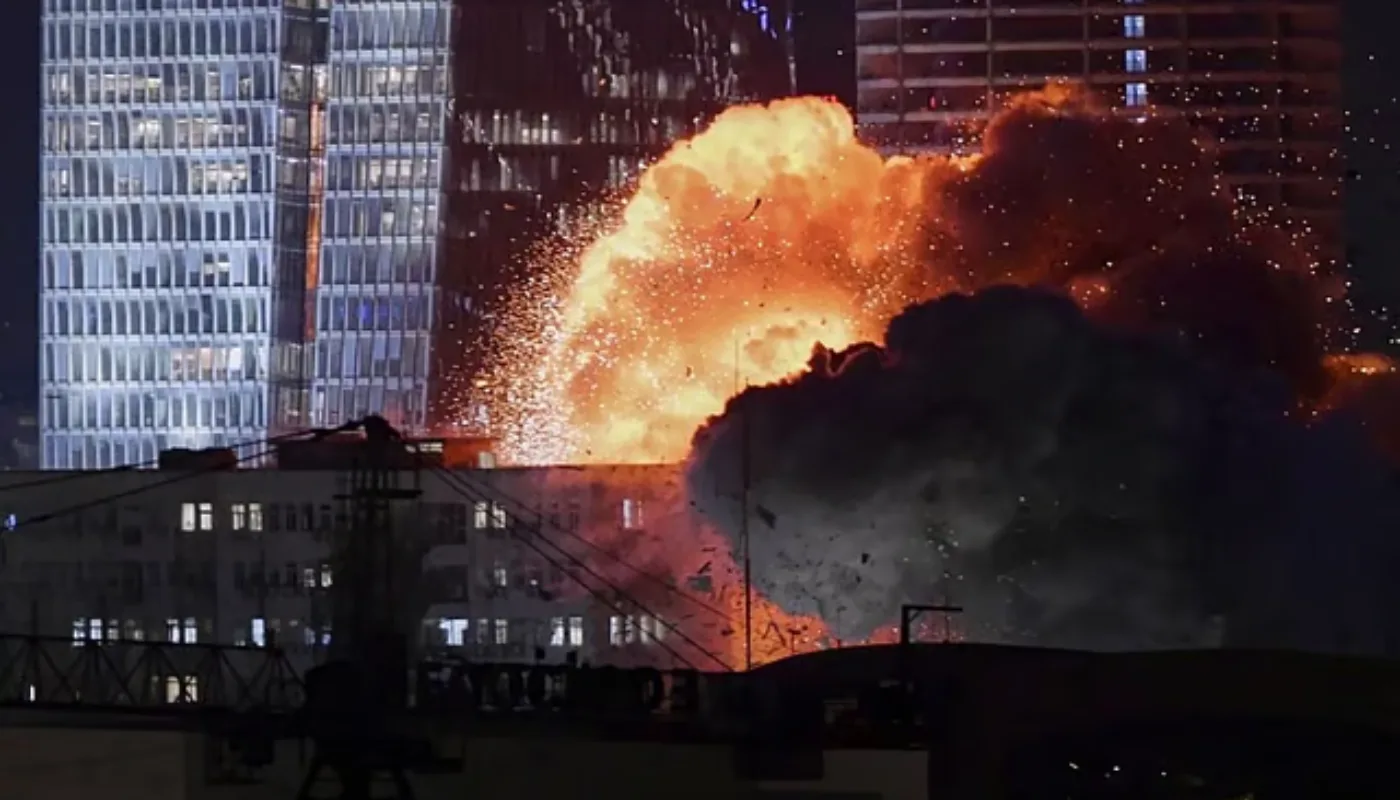TEHRAN/JERUSALEM – Israel carried out one of the most extensive and unexpected aerial attacks on Iranian territory in the early hours of Friday, in what officials in Jerusalem described as a preemptive operation aimed at degrading Iran’s military and nuclear capabilities.
The air strikes, reportedly involving over 200 aircraft, targeted nearly 100 locations across Iran, including key military installations, suspected nuclear sites, missile bases, and command centres. Among the most significant strikes were one near Natanz, Iran’s main uranium enrichment facility, and another at Tehran International Airport.
According to Iranian state media and health officials, at least 78 people were killed and more than 329 wounded. Among the dead were senior commanders of the Islamic Revolutionary Guard Corps (IRGC), including General Hossein Salami, along with nuclear scientists and personnel linked to Iran’s ballistic missile program.
In response, Iran launched a counter-attack under what it called “Operation True Promise III,” firing more than 150 missiles and deploying over 100 drones toward Israeli territory. Israel’s air defence systems intercepted the majority of the projectiles, but some missiles caused damage in the Tel Aviv and Jerusalem areas. Two Israeli civilians were reported killed, with dozens more injured.
Israel has not officially confirmed all operational details, but a senior Israeli defence official said the strikes were necessary to neutralize what they called an “imminent threat” from Iran’s expanding missile capabilities and nuclear development.
The United States confirmed that it was informed of the operation in advance but did not take part. A White House spokesperson stated the U.S. remains committed to preventing nuclear proliferation and will continue to support Israel’s right to self-defence.
Russia condemned the strikes as “unprovoked and illegal,” accusing Israel of destabilizing the Middle East. China and several European nations called for restraint and urged both parties to avoid further escalation.
The United Nations Security Council convened an emergency meeting to address the conflict, with UN officials expressing concern that the confrontation could spiral into a wider regional war.
The strikes mark a significant escalation in tensions between Israel and Iran and have cast further doubt over any diplomatic resolution to Iran’s nuclear ambitions. Analysts warn that the conflict could reshape geopolitical dynamics across the Middle East in the coming months.
Photo Credit: Gulf News





